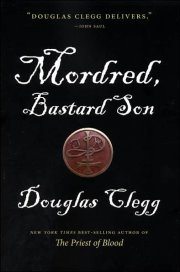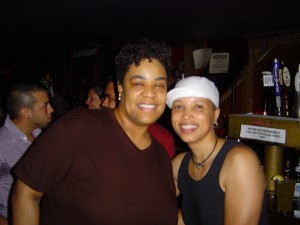I love writing retold stories.
It may seem like a cop-out to take a proven successful plot and characters, tweak them and call the story your own. But to me, if your story entertains, what’s the big deal?
You could probably make the case that all contemporary fiction is derived from ancient mythology, folktales, or parables–there are no original stories out there even though everyone sets out to be fresh and original. The advantage of a novel that is unapologetically re-imagined is there’s an immediate connection with a readership who liked the story the first time and are curious to check it out a second.
I just finished a phenomenal book: Douglas Clegg’s Mordred, Bastard Son, which is drawn from the King Arthur legend.
I had to reorient myself to the source material since my only recollection of Mordred was a snivelling, effete Roddy McDowell singing: “The Seven Deadly Virtues” in the musical Camelot. Creepy stuff. I may have come out years earlier if I hadn’t seen the show.
Luckily, Clegg’s Mordred is an entirely different guy. He was an entirely different guy in the earliest King Arthur legends, Clegg points out in his Foreword. Already I was hooked. We gays have always gotten a bad rap.
Clegg’s Mordred is a misunderstood young man condemned to a life of hiding by his father’s hideous transgressions. Arthur raped Mordred’s mother and stole the sword Excalibur from its sacred place with The Lady of the Lake. A nice thread in the story is Mordred’s finding his place in the world as a gay man. Pre-Medieval Brittanica is not particularly homophobic–it’s still a land of pagan sensibilities–but there aren’t many boys like Mordred while he’s growing up. He’s lonely, curious and frustrated by his attraction to boys he meets that he can never have. Then his mentor Merlin hands him an impossible challenge: he must remain physically pure until he reaches manhood (at approximately 18) or he will lose his potential to master the magickal arts.
The rich development of Mordred is what makes the book so enjoyable and engrossing. He’s a well-intentioned kid constantly thwarted by the people who are supposed to love and protect him.
There’s a love story with the Knight Lancelot who’s the most freely re-imagined character from the conventional tale. Clegg’s Lancelot is the best friend of Mordred’s
father, and he helped Arthur steal Excalibur and try to kill Mordred’s pregnant mother so his bastard son wouldn’t be revealed. When Mordred meets him, Lancelot is estranged from Arthur, living as an outcast, steeped in guilt and desirous of a male companion.
Here Clegg almost lost me. I’ve always thought of Lancelot as the epitome of male heterosexuality. But as I settled in to the latter half of the book, the romance between Mordred and Lancelot was awfully compelling. Lines like: “You’re my hunter, and I’m your stag.” probably make other people cringe, but set things up right and I’ll swoon right in my seat on the train.
Clegg also writes one of the best depictions of magic (magick) I’ve read. It’s inspired from nature–the elementals–and has more in common with native religion than the wand-brandishing wizardry of Harry Potter or the archaic incantations of Lord of the Rings.
The only thing that disappointed was the projected sequels to the book appear to have disappeared unless Clegg and/or his editors are taking their sweet time (it’s been four years since Mordred came out).
Gregory Maguire is of course my favorite author of retold stories. Beyond his humor and his capturing of otherness, he’s a master of setting–the dark but quirky land of Oz, early Renaissance Amsterdam in Confessions of an Ugly Stepsister, and the Italian countryside of the 16th century Borgia family in which he places his re-imagined Snow White in Mirror, Mirror.
So anyone have suggestions for reimagined legends while I wait for Gregory Maguire’s next novel to come out (and perhaps, in vain, for a sequel to Mordred)?
Meanwhile, I’ll be going dark next week while on va-cay in Provincetown. Wishing good times for all this late summer.


